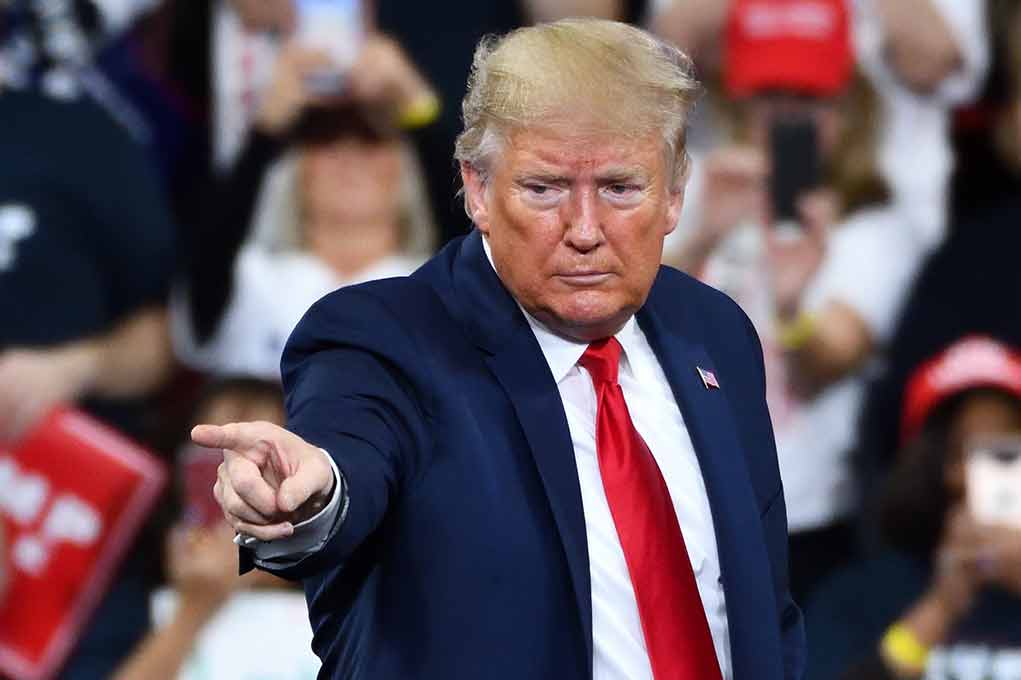
USAID Inspector General Paul Martin fired after exposing the Trump administration’s controversial foreign aid freeze, sparking outrage and legal challenges.
Key Takeaways
- USAID Inspector General Paul Martin was fired after releasing a report critical of the Trump administration’s efforts to reduce the agency’s workforce.
- The Trump administration planned to cut USAID’s staff from 10,000 to about 290, focusing on health and humanitarian assistance.
- A lawsuit was filed against Trump’s plan to shut down parts of USAID, arguing it violates the Constitution.
- Martin’s dismissal is part of a larger pattern, with President Trump having ousted around 20 inspectors general.
- The administration’s actions have caused confusion and concern about the future of USAID and its global humanitarian efforts.
Trump Administration’s Drastic Measures Against USAID
In a stunning move that has sent shockwaves through the international aid community, President Trump has fired Paul Martin, the Inspector General of the U.S. Agency for International Development (USAID). This dismissal comes on the heels of a scathing report from Martin’s office criticizing the administration’s foreign aid freeze and workforce reduction plans. The timing and manner of Martin’s removal have raised serious questions about the administration’s commitment to oversight and transparency in foreign assistance programs.
The Trump administration’s plans for USAID are nothing short of drastic. They aim to slash the agency’s workforce from 10,000 to a mere 290 employees, focusing solely on health and humanitarian assistance. This radical downsizing has been met with fierce opposition from both lawmakers and aid organizations, who argue that such cuts would severely hamper America’s ability to respond to global crises and maintain its leadership role in international development.
Legal Challenges and Political Backlash
The administration’s attempts to dismantle USAID have not gone unchallenged. A federal judge has already blocked President Trump from placing 2,200 USAID staff on administrative leave, recognizing the potential harm such a move could cause to ongoing aid programs and America’s international commitments. Furthermore, a lawsuit has been filed against the administration, arguing that its actions violate the Constitution and exceed executive authority.
“One cannot overstate the impact of that unlawful course of conduct: on businesses large and small forced to shut down their programs and let employees go; on hungry children across the globe who will go without; on populations around the world facing deadly disease; and on our constitutional order,” the U.S. businesses and organizations said.
This legal challenge underscores the far-reaching consequences of the administration’s actions, not just for USAID employees but for countless vulnerable populations around the world who depend on American aid. It also highlights the potential economic impact on U.S. businesses involved in international development projects.
🚨🚨🚨
Trump just fired USAID inspector general Paul Martin—one day after he exposed how Trump’s foreign aid freeze & mass firings have made it easier for U.S. taxpayer dollars to fund terrorist groups like Hamas & ISIS. pic.twitter.com/acJdAEh6ql
— MeidasTouch (@MeidasTouch) February 12, 2025
The Broader Pattern of Inspector General Firings
Martin’s dismissal is not an isolated incident but part of a troubling pattern. President Trump has ousted approximately 20 inspectors general across various departments, raising alarm bells about the erosion of independent oversight within the federal government. These watchdogs play a crucial role in preventing waste, fraud, and abuse, and their systematic removal threatens the integrity of our government institutions.
“Well it’s been run by a bunch of radical lunatics, and we’re getting them out…and then we’ll make a decision” – Trump
The President’s cavalier attitude towards these vital oversight positions is deeply concerning. By dismissing inspectors general who produce reports critical of his administration, Trump is effectively silencing dissent and limiting accountability within the executive branch. This behavior sets a dangerous precedent for future administrations and undermines the checks and balances that are fundamental to our democratic system.
The Future of USAID and American Foreign Assistance
As the controversy surrounding USAID continues to unfold, the future of American foreign assistance hangs in the balance. Secretary of State Marco Rubio has suggested that parts of USAID may be integrated into the State Department, while other functions may be abolished entirely. This proposed reorganization has sparked intense debate about the role of foreign aid in American foreign policy and its effectiveness in advancing U.S. interests abroad.
“USAID may move, reorganize, and integrate certain missions, bureaus, and offices into the Department of State, and the remainder of the agency may be abolished consistent with applicable law” – Rubio
While the administration argues that these changes are necessary to align foreign aid with American foreign policy objectives, critics contend that gutting USAID will severely diminish America’s soft power and global influence. The ongoing legal challenges and political backlash suggest that the battle over USAID’s future is far from over, with significant implications for U.S. foreign policy and global humanitarian efforts in the years to come.
Sources:
- White House fires USAID inspector general following critical report
- USAID Controversy Live Updates: Inspector General Fired After Critical Report Against Trump Administration
- Trump fires USAID’s inspector general after report critical of funding freeze – POLITICO
- White House fires USAID watchdog amid funding freeze controversy

